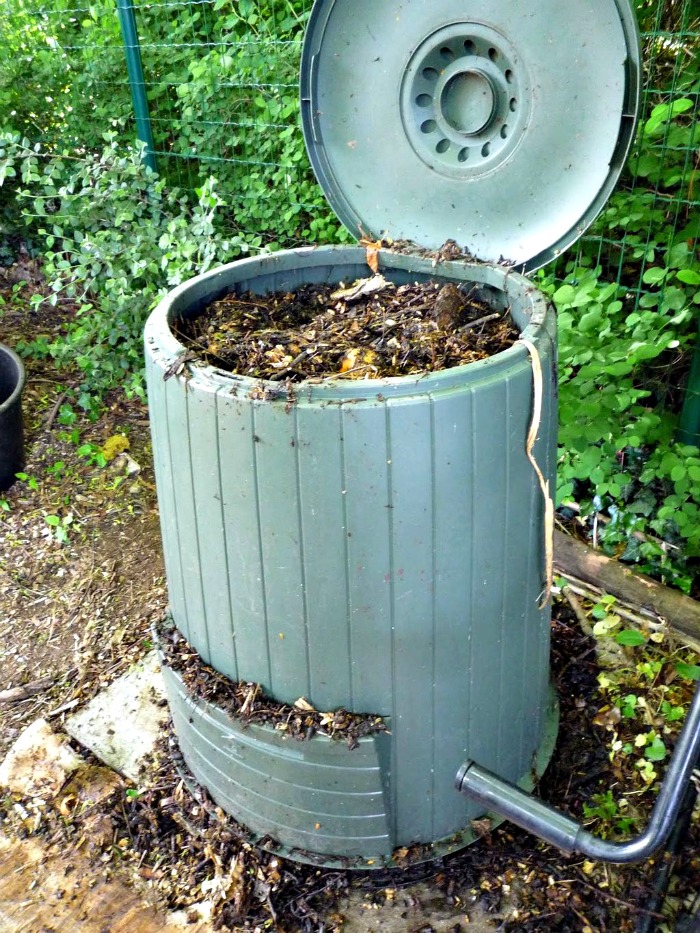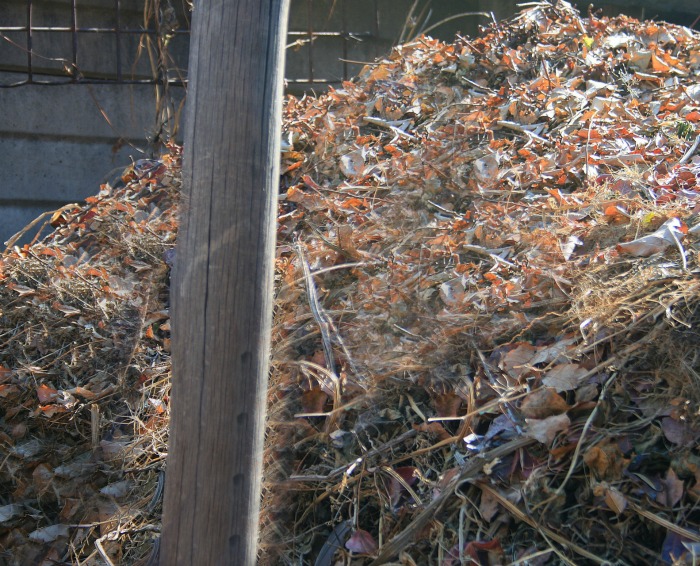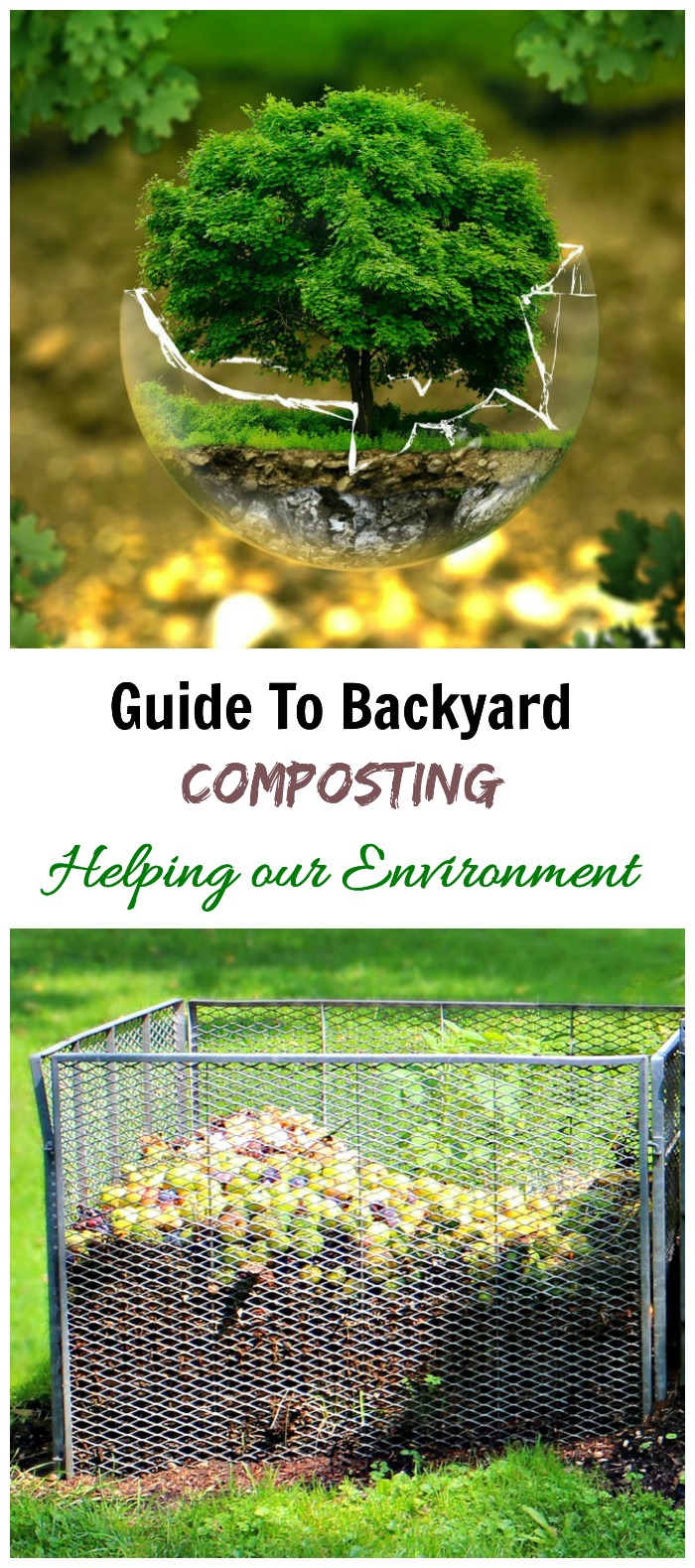Composting turns everyday kitchen scraps and yard waste into nutrient-rich material for your garden. It’s a simple way to reduce waste, help the environment, and improve your soil at the same time.
This guide breaks down composting into clear, manageable steps anyone can follow. You don’t need fancy tools or a big backyard to get started.
You’ll discover what to compost, what to avoid, and how to keep your pile working efficiently. You’ll also learn how to compost organic matter in small yards that don’t have room for a large compost pile.
Whether you’re new to composting or want to improve your current system, this guide gives you practical tips that work. Keep reading to learn more.

Let’s get started with this Composting Guide.
Taking the time to make compost means that you will be returning valuable nutrients back to the soil. Compost is a very mild, natural fertilizer that releases the nutrients slowly to the soil and won’t burn tender perennials and vegetables.
If you use compost in your gardens, you will likely have improved plant growth and a much better yield if you grow vegetables.

The terms compost and humus are sometimes used interchangeably, but they are actually two different things. Humus is found naturally in soil.
Think of the floor of a forest. The conditions there are perfect to turn decaying material naturally into organic matter in the soil.
On the other hand, compost is man’s attempt to mimic Mother Nature by helping this decaying process along in our backyard compost bins.
Why should you compost?
Isn’t compost just a homemade fertilizer used by organic gardeners? Why not just buy some fertilizer and be done with it?
Do you know that we currently throw away enough food scraps and garden waste to make up about 30% of the materials in landfills? Landfill sites are ugly and increase in size all the time.
There are many negative issues associated with landfills, including the toxins and greenhouse gases they produce. Instead of adding to this problem, why not learn what you can about making compost?
Even with these facts in hand, one of the most common mistakes that beginning gardeners make is to forget to compost. Let’s not make that mistake!
Types of compost piles
Compost piles can be as simple as a mound of discarded garden clippings enriched with kitchen scraps to large multi-bin contraptions that take up lots of room in your yard. Garden Centers even use them for attractions!
Many botanical gardens even have demonstration gardens where they teach visitors to recycle their kitchen waste and yard trimmings to generate free soil conditioner. Be sure to ask to see if the one you plan to visit offers this service.
Not all compost piles require a bin or large area of your garden as this article shows.
- Rolling Compost Pile – One of my favorite ways to make compost really quickly
What do I need to know to start a compost pile?
Compost piles are free. They need just four things: water, air, green material, and brown material. Check out this article to find out more about making a compost pile.
- Composting Tips – Tricks for Creating Nature’s Black Gold
What goes into a Compost Pile?
You may think that just dumping garden cuttings and kitchen scraps in a big pile in the backyard is all that you need to do to end up with a compost pile.
Even though composting is simple enough for beginners, it’s actually a bit more complicated than this. The right mix of discarded items really does matter.
These articles will point you in the right direction.
- 12 Things you should never compost – Not everything belongs in a compost pile. It’s not a garbage heap!
- Weird things you did not know you could compost – You mean I can put that on the compost pile?
Composting tips for Small Yards
This composting guide is not just for those with large yards. If you don’t have a large space for a compost pile, you can still compost successfully. Not all homeowners have the luxury of time or a large space to manage a compost pile.
Here are a few answers to this problem:
- Direct Composting – Put garden waste and kitchen scraps to work directly in the garden, instead of in a compost pile.
- Trench Composting with Kitchen Scraps – Use small trenches to put your organic matter right where you want it to go.
Managing a compost pile
Once you have done the other things that are in this composting guide, there is really not much that needs to happen once to keep the compost pile going. These articles will explain a few maintenance tips.
- Garden trays make great compost screens – These free garden supplies will sift your compost easily and cheaply
- Planting in compost – Use the whole pile to grow butternut pumpkins!
- Using household items to turn a compost pile – You will be surprised what you have on hand that will accomplish this job easily.
Some of the links below are affiliate links. I earn a small commission, at no additional cost to you, if you purchase through an affiliate link.
Tools for Composting
Looking for the perfect composting supplies to get started? These bins, aerators, and under-the-counter composting products may be of interest to you.
- Countertop kitchen compost bin
- Soil sifter for compost
- Wooden worm composter
- Build your own compost bins with these plans
- DIY composter bin bracket set
- Rolling compost bin tumbler
- Compost aerator
For More Ideas on the Topic of Composting, be sure to check out my Pinterest Board Composting 101.
Share this composting guide on X
If you enjoyed learning more about composting, why not share this guide with a friend? Here is a post to get you started:
Turn garden waste into black gold with a compost pile. RT if you ♥ organic gardening! Head to The Gardening Cook for tips about composting. Share on XLooking for more Recycling ideas?
If you enjoyed this composting guide, be sure to also check out these posts to see how to use kitchen scraps in your garden:
- Foods that will regrow from Kitchen Scraps
- 10 Ways to use Baking Soda in the Garden
- Used Coffee Grounds are great for camellias, azaleas, and hydrangeas
- Tea Bags – Recycling Tips Using Tea Bags in the Garden
- A guide to growing herbs
Pin this composting guide for later
Would you like a reminder of these tips for composting? Just pin this image to one of your gardening boards on Pinterest so that you can easily find it later.

